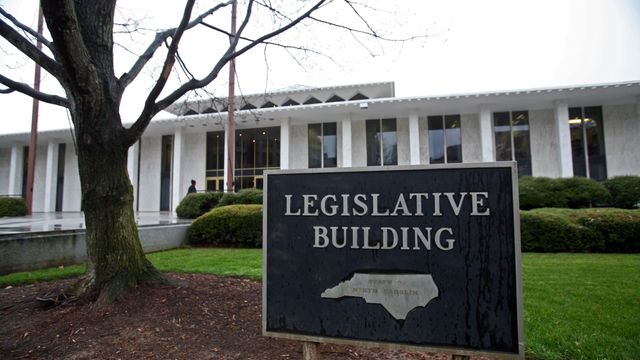Education, coal ash top state Senate priorities
Senate leader Phil Berger says that the state may have the money to increase pay for teachers, but lawmakers may not follow guidelines laid out by the governor this week. Laying out a long-term plan for how Duke Energy will deal with coal ash will also top legislative priorities this session
Posted — UpdatedBut don't look for the legislature to adopt the plan wholesale.
"It is my expectation in adopting a balanced budget we will have the capacity (for) not only what we have promised up to this point, but our expectation is we'll be able to go further," Berger said at a Thursday news conference. "I don't want to say we'll adopt the governor's plan. I think that's something the members will need to go through and review, but I think teacher compensation and addressing a compensation increase for employees is one of those priorities that we have."
McCrory has said he also wants to give a $1,000 raise to all state workers. Berger emphasized that raises for teachers and state workers are on the legislative agenda, but said they may not necessarily take the form prescribed by McCrory.
North Carolina raises and spends $20 billion in state taxes every year, plus billions more in federal tax grants. The main purposes of this year's "short" legislative session, which opens next Wednesday, is to make changes to the budget.
Although there is no hard and fast deadline, lawmakers generally expect to end their work for the year shortly before July 4. In general, lawmakers try to limit the number of issues taken up during sessions that take place in the summer of even-numbed years, often deferring thornier issues until the "long" sessions of odd-numbered years.
The budget generally, and teacher pay specifically, tops the agenda for most legislative leaders this year. With 50 members of the Senate and 120 members of the state House, there are no shortage of ideas and of local priorities and personal hobby-horses that lawmakers will push. However, some priorities are more equal than others, especially when they come from leaders like Berger. Here are five more areas he said will be top of mind when lawmakers return to work this year:
"We've made that point in the past that Medicaid has had the tendency to crowd out our ability to do some things," Berger said.
Dealing with that shortfall, and preventing a similar one in the future, will be a significant part of the budget process, he said.
That said, don't expect a major shift in Medicaid budget policy this year. A committee appointed by the governor, Berger and House Speaker Thom Tillis recommended the state create accountable care organizations – physician groups that would collect a flat fee to care for Medicaid patients. Berger said that suggestion doesn't go far enough.
"That may very will be something that will have to wait until the longer session in 2015," he said.
Lawmakers, he said, would move forward with a bill that not only ensured that Duke Energy cleaned up the Dan River spill but did something to ensure similar incidents don't occur at 13 others locations through North Carolina where the company has coal ash stored in ponds.
"We need to have a solution that ensures coal ash is not going to be a potential problem for our drinking water supplies. That means our rivers, our groundwaters, all of those things," he said.
"We want to see North Carolina receive the same kinds of benefits we're seeing in other states in terms of the creation of jobs and the infusion of capital into the economy," Berger said.
Asked if that meant removing the moratorium on hydraulic fracturing now in place, he replied, "I think that would be something that would be beneficial in moving forward."
Berger said there would once again be bills in that spirit, but could not say what specific legislation might be proposed.
• Credits
Copyright 2024 by Capitol Broadcasting Company. All rights reserved. This material may not be published, broadcast, rewritten or redistributed.






